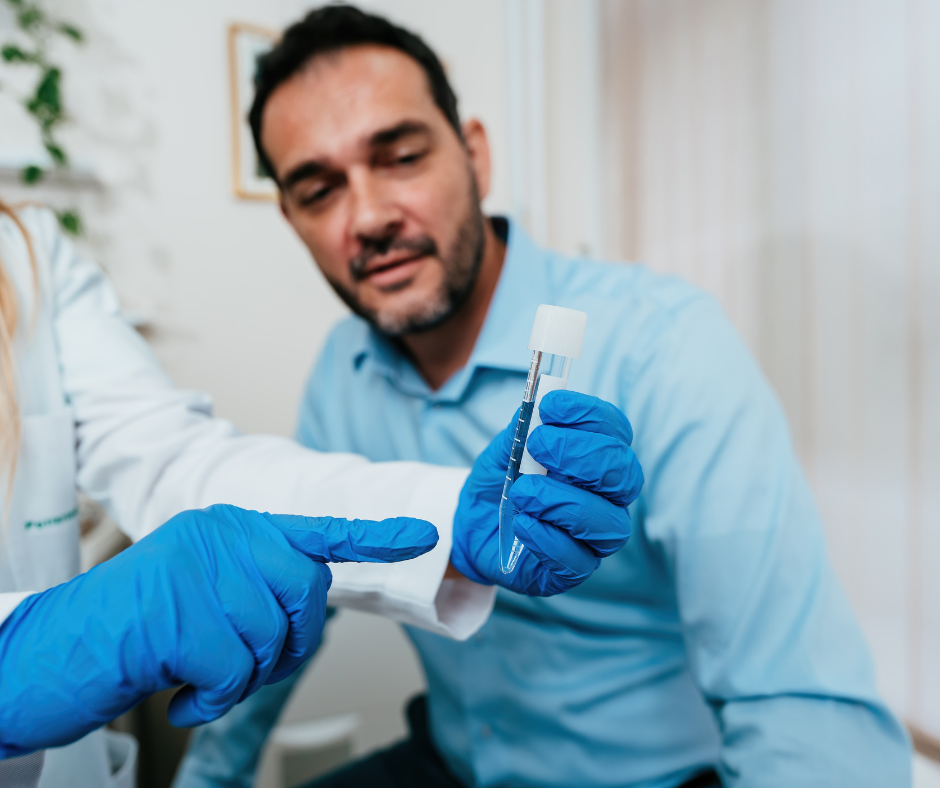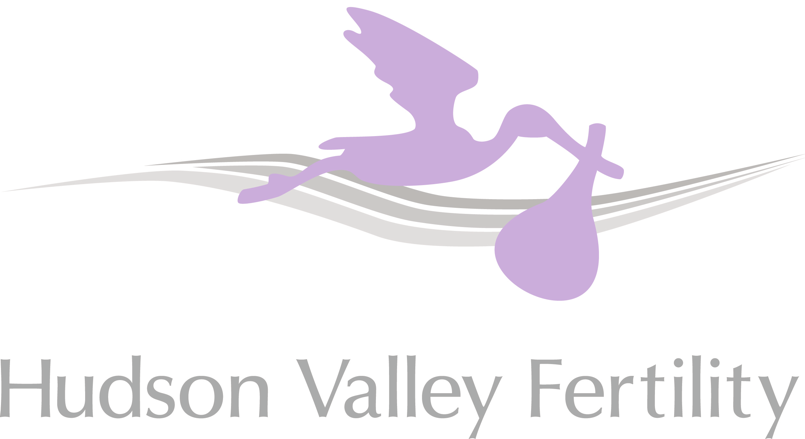
The Ultimate Guide to Natural Fertility and Wellness: Unlocking the Secrets to Optimal Health and Reproductive
In our modern world, the pursuit of optimal health and fertility has become a complex journey, often overshadowed by the conveniences of modern medicine and quick-fix solutions. However, as we delve deeper into the intricate web of human biology, we are rediscovering the profound wisdom of nature and the power of holistic approaches to wellness. This comprehensive guide is a testament to the transformative potential of natural fertility and wellness, offering a roadmap to unlocking the secrets of reproductive success and overall well-being.
Through this journey, we will explore the intimate connection between a woman's wellness and her fertility, unraveling the intricate tapestry of physical, emotional, and spiritual factors that intertwine to create a harmonious state of being. We will uncover the profound benefits of ancient practices like acupuncture, the nourishing power of a fertility-friendly diet, and the profound impact of lifestyle choices on our reproductive health.
Together, we will embark on a transformative odyssey, empowering ourselves with knowledge, embracing natural remedies, and cultivating a deep reverence for the innate wisdom of our bodies. This guide is not merely a collection of facts but a living testament to the resilience and beauty of the human spirit, inviting us to reclaim our innate vitality and embrace the profound joy of nurturing new life.
Understanding the link between women's wellness and fertility
The intricate dance between a woman's overall wellness and her fertility is a delicate symphony, where each aspect of her being plays a crucial role. Just as a harmonious orchestra requires the seamless collaboration of various instruments, a woman's fertility thrives when her physical, emotional, and spiritual well-being are in perfect alignment.
At the heart of this connection lies the recognition that our bodies are not mere vessels but complex ecosystems, intricately woven with intricate feedback loops and delicate balances. Stress, poor nutrition, and environmental toxins can disrupt these delicate equilibriums, hindering our reproductive potential and overall vitality.
By embracing a holistic approach to wellness, we can nurture the intricate tapestry of our being, fostering an environment conducive to optimal fertility. This journey begins with cultivating self-awareness, listening to the subtle whispers of our bodies, and honoring the innate wisdom that resides within us.
Through this lens, we can appreciate the profound impact of our lifestyle choices, from the foods we consume to the thoughts we entertain, on our reproductive health. By nourishing our bodies with nutrient-dense foods, engaging in gentle movement, and cultivating a sense of inner peace, we create the fertile soil in which the seeds of life can flourish.
The importance of a holistic approach to fertility and wellness
In our modern world, where specialization and compartmentalization often reign supreme, it is easy to lose sight of the interconnectedness of our being. However, true wellness and fertility demand a holistic approach, one that recognizes the intricate dance between our physical, emotional, and spiritual realms.
A holistic approach to fertility and wellness acknowledges that our bodies are not mere machines but complex ecosystems, intricately woven with intricate feedback loops and delicate balances. It invites us to embrace the profound wisdom of ancient healing modalities, which have stood the test of time, while also embracing the insights of modern science.
By adopting a holistic mindset, we can unravel the intricate tapestry of our being, recognizing the profound impact of our thoughts, emotions, and belief systems on our physical well-being. We can cultivate a deep reverence for the innate intelligence of our bodies, honoring their rhythms and cycles, and fostering an environment conducive to optimal fertility.
This holistic journey is not merely about treating symptoms or addressing isolated issues but about nurturing the fertile soil from which true vitality and reproductive success can blossom. It invites us to embrace a lifestyle that nourishes our bodies, calms our minds, and ignites our spirits, creating a harmonious symphony of well-being.
Exploring the benefits of acupuncture for wellness and fertility
In the ancient tapestry of traditional Chinese medicine, acupuncture stands as a timeless testament to the profound wisdom of natural healing modalities. This ancient practice, rooted in the harmonious flow of life force energy (known as "qi"), has been embraced for centuries as a powerful tool for restoring balance, promoting wellness, and enhancing fertility.
At the core of acupuncture lies the belief that our bodies are intricate networks of energy pathways, known as meridians, through which qi flows. When these pathways become blocked or imbalanced, it can lead to a myriad of physical, emotional, and reproductive challenges. By strategically inserting fine needles along specific points along these meridians, acupuncture aims to restore the harmonious flow of qi, unlocking the body's innate healing potential.
For those on the journey to optimal fertility, acupuncture can offer a multitude of benefits. It has been shown to regulate hormonal imbalances, improve ovarian function, and enhance blood flow to the reproductive organs, creating a fertile environment for conception. Additionally, acupuncture can alleviate stress and promote relaxation, two crucial factors in supporting reproductive health.
Beyond its direct impact on fertility, acupuncture also supports overall wellness by addressing a wide range of health concerns, from chronic pain to digestive issues, and promoting a sense of balance and harmony within the body. By embracing this ancient healing modality, we can tap into the profound wisdom of nature and unlock our innate potential for vitality and reproductive success.
Nutrition and fertility: How diet impacts reproductive success
In the intricate tapestry of fertility and wellness, the foods we consume play a pivotal role, nourishing not only our physical bodies but also the delicate ecosystems that support reproductive health. Just as a vibrant garden requires nutrient-rich soil and careful tending, our bodies thrive when we provide them with the essential building blocks for optimal fertility.
At the heart of a fertility-friendly diet lies the principle of nourishing our bodies with whole, nutrient-dense foods that support hormonal balance, egg quality, and overall reproductive function. This means embracing a diverse array of colorful fruits and vegetables, rich in antioxidants and phytonutrients that protect our cells from oxidative stress and support healthy inflammation levels.
Healthy fats, such as those found in avocados, nuts, and fatty fish, are essential for hormone production and overall reproductive health. Likewise, high-quality proteins from sources like grass-fed meats, wild-caught fish, and plant-based options like lentils and quinoa provide the building blocks for healthy egg and sperm development.
Beyond the specific nutrients, a fertility-friendly diet also emphasizes the importance of balancing blood sugar levels, as fluctuations in insulin can disrupt hormonal harmony and contribute to conditions like polycystic ovarian syndrome (PCOS). By embracing a diet rich in fiber, healthy fats, and complex carbohydrates, we can support stable blood sugar levels and create an environment conducive to reproductive success.
It is important to remember that our bodies are unique ecosystems, and what works for one individual may not be optimal for another. By tuning into our bodies' subtle cues and embracing a mindful approach to nutrition, we can unlock the transformative power of food and pave the way for optimal fertility and overall well-being.
Lifestyle factors that affect fertility and wellness
In our modern world, where the pace of life often outstrips our ability to keep up, it is easy to overlook the profound impact of our daily choices on our fertility and overall well-being. However, the truth is that our lifestyle habits, from the way we move our bodies to the way we manage stress, can either nurture or hinder our reproductive potential.
One of the most significant lifestyle factors influencing fertility is physical activity. While excessive exercise can disrupt hormonal balance and impair reproductive function, moderate movement, such as gentle yoga, walking, or low-impact cardio, can improve circulation, reduce stress, and promote a healthy body weight – all of which are crucial for optimal fertility.
Sleep, too, plays a pivotal role in our reproductive health. Chronic sleep deprivation can wreak havoc on our hormonal equilibrium, impair ovulation, and contribute to conditions like polycystic ovarian syndrome (PCOS). By prioritizing restorative sleep and cultivating healthy sleep habits, we can support our bodies' natural rhythms and create an environment conducive to fertility.
Environmental exposures, such as toxins, pollutants, and endocrine-disrupting chemicals, can also have a profound impact on our reproductive health. By embracing a mindful approach to our living spaces, reducing exposure to harmful substances, and supporting our bodies' natural detoxification processes, we can mitigate the potential risks and nurture a fertile environment.
Lastly, stress management is a critical component of any holistic approach to fertility and wellness. Chronic stress can disrupt hormonal balance, impair ovulation, and even reduce sperm quality. By incorporating stress-reducing practices like meditation, deep breathing exercises, or simply carving out moments of stillness in our busy lives, we can cultivate a sense of inner calm and create a fertile oasis within ourselves.
Natural remedies and alternative therapies for enhancing fertility
In the vast tapestry of natural healing modalities, there exists a treasure trove of remedies and alternative therapies that have been embraced for centuries to support fertility and reproductive health. These time-honored practices, rooted in the wisdom of ancient traditions, offer a gentle yet powerful approach to nurturing our bodies and creating an environment conducive to new life.
One such remedy is the use of herbal supplements, which have been revered for their ability to balance hormones, regulate menstrual cycles, and support overall reproductive function. Herbs like vitex (chasteberry), maca root, and red raspberry leaf have been traditionally used to address issues like irregular periods, hormonal imbalances, and uterine health.
Aromatherapy, the use of essential oils, is another powerful tool in the natural fertility arsenal. Certain oils, like clary sage, geranium, and ylang-ylang, are believed to have hormone-balancing properties and can be used in massage or diffused to create a calming, fertility-friendly environment.
For those seeking a more hands-on approach, fertility massage and abdominal massage can be incredibly beneficial. These gentle techniques aim to improve blood flow to the reproductive organs, alleviate pelvic congestion, and promote overall relaxation – all of which can support optimal fertility.
It is important to note that while natural remedies and alternative therapies can be powerful allies on the journey to fertility, they should be approached with caution and under the guidance of qualified professionals. Each individual's needs are unique, and what works for one person may not be suitable for another.
The role of stress management in optimizing fertility and wellness
In the intricate tapestry of fertility and wellness, stress is often an overlooked yet profound factor that can disrupt the delicate balance of our bodies and hinder our reproductive potential. Chronic stress, whether it stems from work demands, relationship challenges, or the weight of societal pressures, can wreak havoc on our hormonal equilibrium, impair ovulation, and even reduce sperm quality.
However, the impact of stress extends far beyond the realm of reproductive health. It can contribute to a host of physical and emotional issues, from digestive disorders and chronic pain to anxiety and depression. By embracing effective stress management strategies, we not only nurture our fertility but also cultivate a deeper sense of overall well-being.
One powerful tool in the stress management arsenal is mindfulness meditation. This ancient practice invites us to cultivate present-moment awareness, quieting the incessant chatter of our minds and allowing us to tap into a state of inner calm. Regular meditation has been shown to reduce cortisol levels (the primary stress hormone), improve sleep quality, and enhance overall emotional resilience.
Another effective strategy is the practice of gentle movement, such as yoga or tai chi. These mindful forms of exercise not only promote physical well-being but also offer a means of connecting with our bodies, releasing tension, and cultivating a sense of inner peace.
Engaging in creative pursuits, spending time in nature, or simply carving out moments of stillness in our busy lives can also serve as powerful antidotes to stress. By nurturing our spirits and embracing activities that bring us joy and fulfillment, we create a fertile environment for overall well-being and reproductive success.
Resources for learning more about natural fertility and wellness
The journey towards natural fertility and wellness is a lifelong pursuit, one that requires a commitment to continuous learning and growth. Fortunately, there is a wealth of resources available to support and guide you along this transformative path.
One invaluable resource is the vast array of books and publications dedicated to natural fertility and holistic wellness. From in-depth explorations of traditional healing modalities to practical guides on nutrition and lifestyle choices, these literary treasures offer a wealth of knowledge and inspiration.
Online communities and support groups can also be powerful sources of information and encouragement. By connecting with like-minded individuals on a similar journey, you can share experiences, ask questions, and gain valuable insights from those who have walked the path before you.
Additionally, many holistic health practitioners, such as naturopathic doctors, acupuncturists, and fertility coaches, offer educational workshops, seminars, and one-on-one consultations. These knowledgeable experts can provide personalized guidance, address your specific concerns, and help you navigate the intricacies of natural fertility and wellness.
It is important to approach these resources with an open yet discerning mind, recognizing that not all information is created equal. By cultivating a critical eye and relying on reputable sources, you can separate fact from fiction and ensure that the knowledge you acquire is grounded in science and time-honored wisdom.
Conclusion: Empowering yourself on your journey to optimal health and reproductive success
As we conclude our exploration of natural fertility and wellness, it is important to recognize that this journey is not merely a destination but a lifelong embrace of self-empowerment and holistic well-being. By embracing the wisdom of nature and the profound interconnectedness of our bodies, minds, and spirits, we can unlock the secrets to optimal health and reproductive success.
Throughout this guide, we have delved into the intricate tapestry of factors that influence fertility, from the nourishing power of a balanced diet to the transformative benefits of ancient healing modalities like acupuncture. We have explored the profound impact of lifestyle choices, stress management, and environmental exposures, recognizing that true wellness is a harmonious symphony of physical, emotional, and spiritual elements.
As we embark on this transformative journey, it is essential to cultivate self-compassion and patience. Fertility and wellness are not linear paths but intricate dances, with ebbs and flows, triumphs and challenges. By embracing a mindset of curiosity and self-acceptance, we can navigate these complexities with grace and resilience.
Ultimately, the true power of natural fertility and wellness lies in our ability to reclaim our innate wisdom, to listen to the subtle whispers of our bodies, and to honor the profound intelligence that resides within us. By doing so, we not only nurture our reproductive potential but also cultivate a deeper sense of wholeness, vitality, and joy.
If you're ready to embark on a transformative journey towards optimal fertility and wellness, we invite you to explore our comprehensive range of resources and services. From personalized consultations with our team of holistic health experts to immersive workshops and online courses, we are dedicated to empowering you with the knowledge and tools you need to unlock your innate potential.
Join our vibrant community of like-minded individuals and gain access to a wealth of support, inspiration, and guidance. Together, we can navigate the complexities of natural fertility and wellness, celebrating the profound wisdom of our bodies and embracing the joy of nurturing new life.
Take the first step towards reclaiming your vitality and reproductive success by scheduling a complimentary consultation with one of our experienced practitioners today. Let us be your trusted companions on this transformative odyssey, guiding you towards a state of harmonious well-being and empowering you to thrive.











